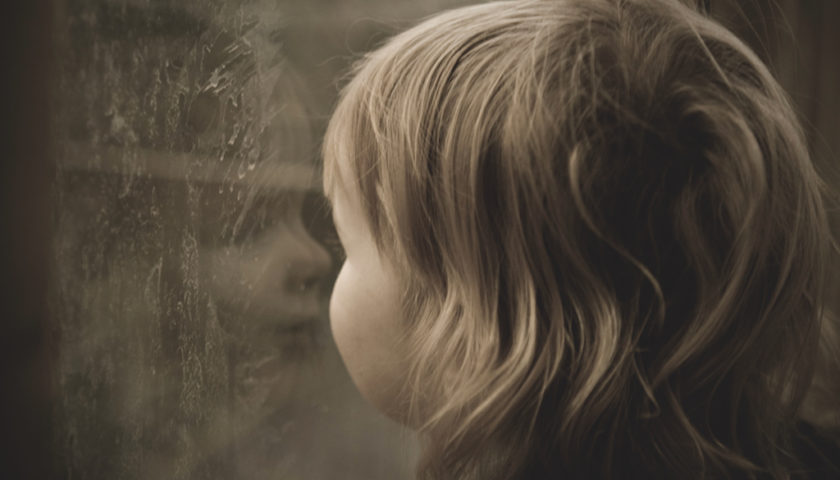The incredible story of Der Blinde Chazzan, Cantor Abe Immerman
By: Moira Schneider
Being blind virtually from birth and orphaned from the age of five was no bar to Cantor Abe Immerman’s lifetime of service to the Jewish community. Known as “Der Blinde Chazzan”, he had memorised the entire Torah off by heart, including, quite incredibly, the trop (its musical cantillation), as well as all the synagogue services by the time he was in his mid-twenties and went on to lead many congregations around the country.
And now broadcast journalist and filmmaker Lisa Chait has produced a film, Legacy of Light, to honour his memory and ensure this community treasure is not lost to future generations. Chait, who had first video interviewed Cantor Abe some 20 years ago, came across the videotapes while spring-cleaning last December and decided something had to be done with them.
“We came up with the idea of a short version, plus to edit the longer version neatly and put it on an online platform,” she says. In what has developed into a full-blown project, Chait has created a page on her website devoted to Cantor Immerman and her dream is that people from around the world will post comments, videos, photographs, documents, or letters that they might have in their possession in what is intended to be an ongoing conversation about his life.
A standout memory for cousin Shelly Furman is that Cantor Abe always used to say that he came forth on the fourth of the fourth – a reference to the fact that he was born on the 4th of April. “He had a wicked sense of humour and he punned everything,” she recalls. “He would say: ‘The fishmonger had a party and not a sole turned up!’ Then he would say, ‘Laugh, now laugh!’ He loved singing and would always sing with us children – we all loved him!”
Furman relates that Cantor Abe, who passed away in 2003 at the age of 96, ran the Pesach sedarim at Highlands House for 50 years and only stopped conducting services well into his eighties after fainting at Mowbray Shul one Yom Kippur.
When he had his leg amputated (a second amputation followed later), an attempt to fit him with a prosthesis was unsuccessful, as sight is necessary for balance, so he was wheelchair-bound for the rest of his life. “For a while, after the first one, he didn’t want to go out and I couldn’t work out why,” she recalls. “Eventually I got out of him that he didn’t want people to stare at him. It had never, ever occurred to him that people stared at him anyway because he was blind.”
When Furman’s son, Graham, who is now 40, was born, Cantor Abe phoned and said that he wanted to record his bar mitzvah portion as he wouldn’t be alive at the time. “I said, ‘Not now – you’ll record it when you teach him.’ The first time I took him for a lesson, it was very emotional for me and I sat there crying,” she remembers.
Cantor Abe settled in Oudtshoorn for 15 years and then moved to Cape Town, teaching generations of Herzlia students and bar mitzvah boys for over 50 years. Amazingly, he remembered everyone by name, as well as each bar mitzvah student’s Torah portion.
Chait herself was taught by him and “loved” him. “I grew up in Vredehoek and I remember he would always walk from his home in Rugley Road up Buitenkant Street, always dressed immaculately in a dark suit and black hat with his white walking stick, and he would stand on the side and we would stop and offer him a lift. He recognised us by our voices. He was an absolute feature of the area – he’s totally in our DNA. At Herzlia High School,” she continues, “during Tanach class he would knock on the door, take 10 minutes and teach us singing and Torah, and then we’d all want to take him to the next class because we wanted to bunk!”
The special qualities that struck Chait when she conducted the original interview were “his warmth, humility, deep sense of service, faith in G-d, and that mind”. When Chait asked him how he had managed to memorise the entire Torah, he replied simply: “I had to rely on my memory.” “I was fascinated by that and by how humble he was about his incredible mental gymnastics to remember all of that.”
The chazzan had quiet dignity, loved people, and had a good sense of humour, she adds. “He had all these puns, like ‘I can’t see why I should be unhappy’.” He also had great fun telling people on what day of the week they were born from their date of birth. “It was his hobby, his fun. He was just the most divine man – never complained, no bitterness about his disability, totally committed. For 40 years, including at Herzlia Hope Street (the original site of the school), he taught and he was there quietly. The way he walked up that street with his cane, step after step after step, was how he continued to serve the community,” Chait says.
“He wasn’t a rah-rah kind of guy, a cantor who had the best voice in the world and was looking for accolades,” she says. “He just did what he needed to do and I think he did it with a sense of connection to G-d.” The chazzan had the attitude that these were the cards he was dealt and he was determined that he would make the most of it, she says. “I think he was an innately positive character.”
Cantor Ivor Joffe of the Green and Sea Point Hebrew Congregation was one of Cantor Abe’s bar mitzvah students in 1983. He says that the chazzan was “definitely” one of the mentors who inspired him to follow in his footsteps. “What was quite remarkable was how he knew not only the whole Torah, but the Tanach and the entire liturgy off by heart,” he relates, adding, “He was often invited to lead services for Shabbat and festivals all over. I teach bar mitzvah boys now – I use the same trop that Cantor Immerman taught me – and I have to refer to the book and the Chumash all the time. He must have had remarkable powers of recall, because everything was taught to him by rote and he was able to absorb and remember it all.”
The chazzan was also able to work out in his head within seconds which portion a bar mitzvah boy would have from his date of birth – no mean feat as the Jewish calendar changes all the time, what with leap years among other factors. “I had a close connection with him,” Joffe continues. “Even after my bar mitzvah, when I was asked to do a haftorah, I used to go to him to maintain that bond, even though he taught me very well and I knew the trop. I would go through it with him and I think he took a lot of pleasure that I was asking for his guidance.”
Today Joffe coordinates the Jewish music programme at Herzlia and says he is definitely inspired by his schoolboy memories of Cantor Immerman in this regard. Referring to the late chazzan’s sense of humour, Joffe recalls an incident from his own bar mitzvah lessons. He was practising his haftorah when the word “ve’samti” came up. The chazzan called out to his helper, “Dorothy, Ivor wants some tea!”
Orphaned at the age of five years, Abe was brought up by a stepfather in Zastron in the Free State. “The home was the cheder and he used to sit and suck it in. There was a rabbi who billeted with them during the (First World) War who taught him too,” Chait says of his beginnings. There was no braille in Hebrew when he was younger so he had to learn everything by heart. He started to learn the Shema at the age of five – he had an interest and connected with G-d,” she says.
In Zastron there was no school that could cater for him, so he started school at the age of 15 as the only Jewish child at the Worcester School for the Blind, where he had to catch up and learn braille. He attended until the age of 18 and it was then expected that he would take up a trade such as basket-weaving or mattress-making.
“He said ‘Forget it!’ He had connected with his Jewishness at an early age and with the local rabbi in Worcester and he said: ‘I’m going to be a cantor. I want to teach’,” Chait explains. The film is an inspiration for everybody who wants to find light in darkness, Chait notes, adding that it is one of the most inspiring stories she has done over her many years in radio and television. “How many other blind people were there who remember such an enormous amount and who have contributed so much so humbly?”
“He was legendary and to be able to create something about this man, especially more than 15 years after he has died and the fact that so many people will connect with it, has made it probably one of the most exciting projects.”
The films are available on www.lifestories.co.za . Go to the website and click: “Watch interviews.”
Side bar:
Rabbi Desmond Maizels of the Cape Beth Din says that Cantor Immerman never leined because, although he knew the Torah by heart, halachically, it was not permissible. “The Torah is the written law and the written law has to be read. But he could say the haftorah because it came from the Book of Prophets – that could be said off by heart.” By the same token, a blind person can be the shaliach tzibur, aka shatz for short, the one who leads the davening. It was likewise fine for him to teach bar mitzvah boys.




